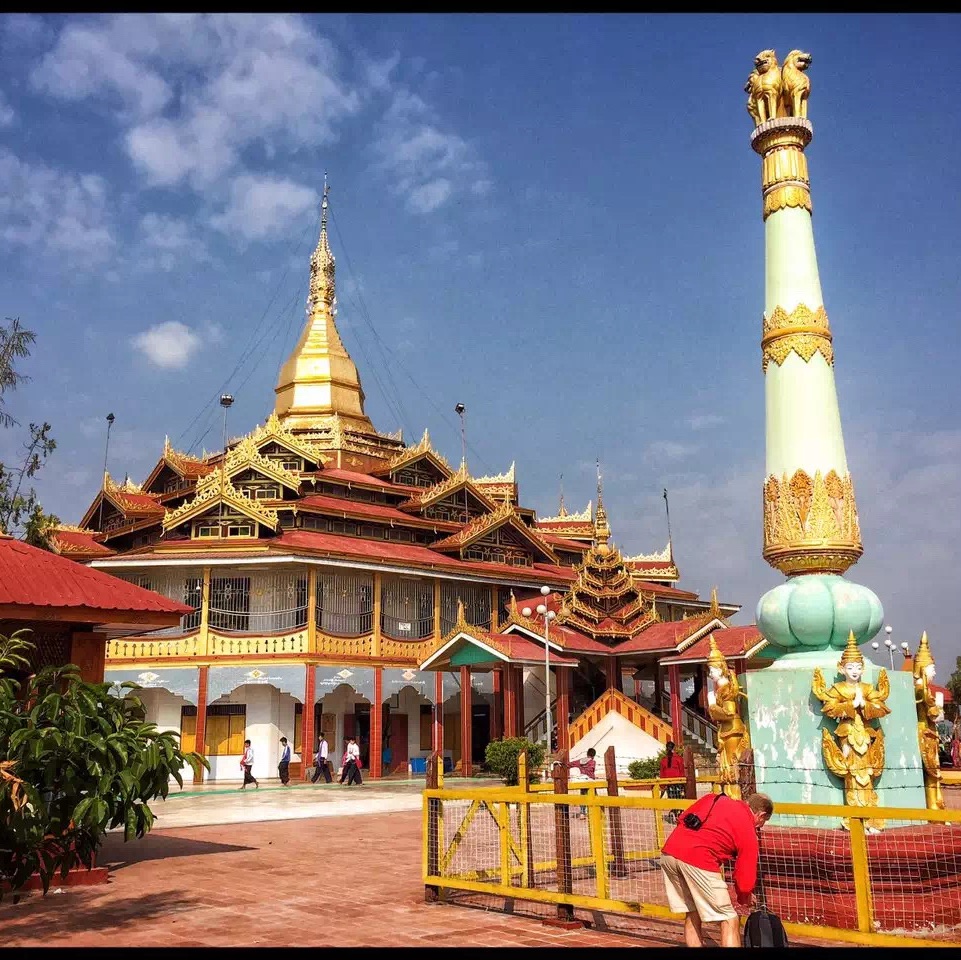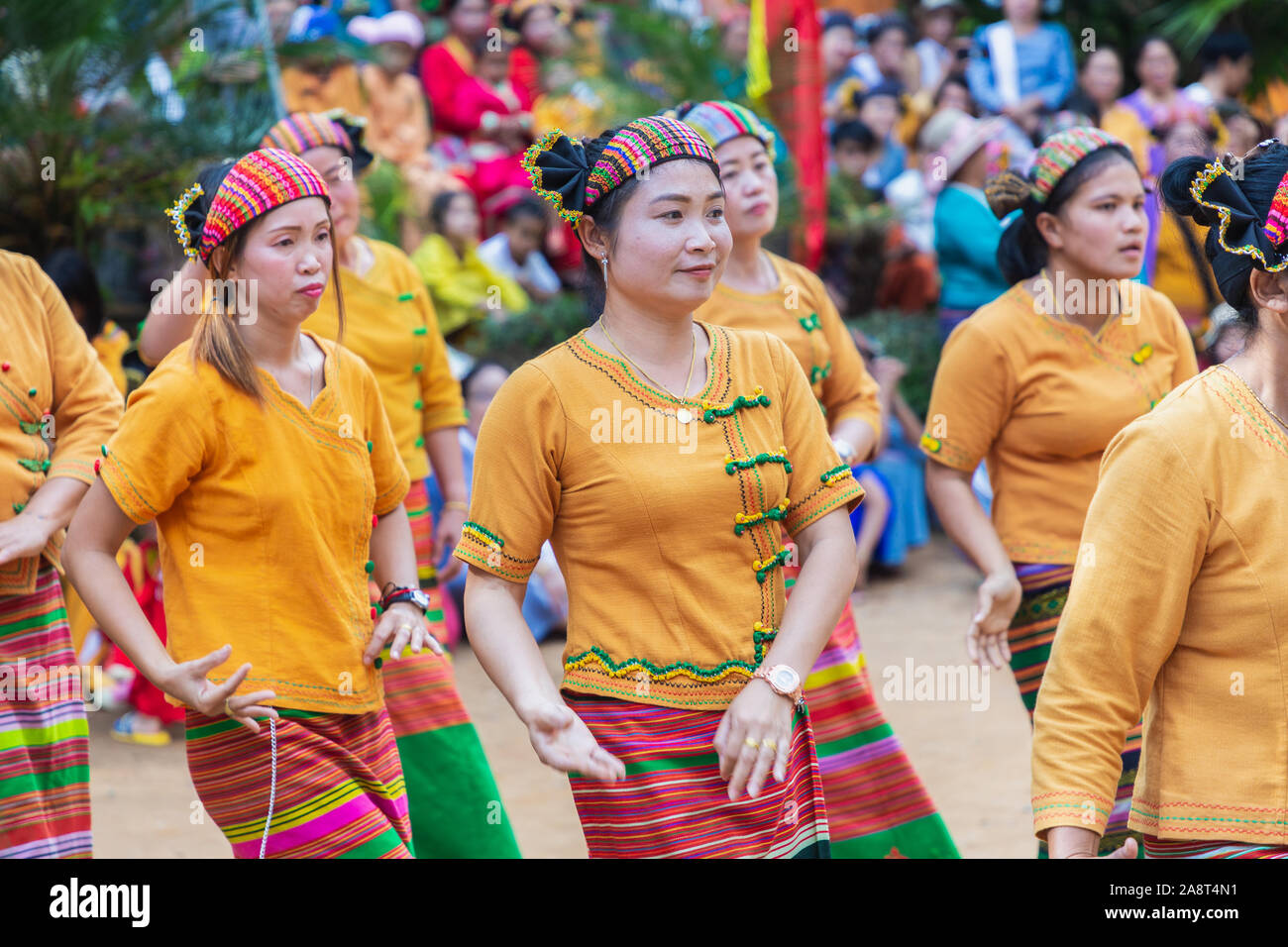Have you ever stopped to think about what it takes for someone to become a bodybuilder, especially when they come from a place with deep, long-standing traditions? It's a rather interesting idea, isn't it, picturing someone who might have grown up farming rice, perhaps, now dedicating themselves to building impressive muscle. We often think of bodybuilding as a very modern pursuit, but the roots of physical strength and discipline can be found in so many different cultures, you know, sometimes in unexpected ways.
This conversation explores the idea of a Shan bodybuilder, drawing on what we know about the Shan people and their way of life. It’s about considering how someone from this distinct cultural background, with its own history and daily routines, might connect with the intense commitment that bodybuilding demands. We'll be looking at their traditional existence and how that might shape a person's approach to physical development, basically, trying to see the connections.
The information we're working with comes from various descriptions of the Shan people themselves, their home areas, and their everyday customs. We will try to piece together a picture of what it could mean for someone from this group to pursue such a specific physical path, like bodybuilding, and how their background might influence their dedication and outlook, in a way, exploring the possibilities.
Table of Contents
- Who Are the Shan People, Anyway?
- A Look at Shan Life - What Does It Involve?
- The Meaning of Shan - More Than Just a Name?
- How Might a Shan Bodybuilder Connect with Tradition?
- Shan Culture - What Makes It Special?
- The Place of Shan State - Where Do They Live?
- Modern Shan Voices - How Do They Share Their Stories?
- Shan Identity and Physicality in the Context of a Shan Bodybuilder
Who Are the Shan People, Anyway?
The Shan people, sometimes called the Tai Long or Tai Yai, represent a distinct ethnic group with a fascinating past. They are a Tai ethnic group, and their name, Shan, is the name given to this group in Myanmar, you know, where many of them reside. Their story includes a significant move many centuries ago, when they came into Myanmar from China, which is to the north, and then they made their homes in the river valleys.
These people are a considerable part of the population in Myanmar, forming the largest minority group there. They are also found in other places, particularly in Yunnan province, China, and they live primarily in the eastern and northwestern parts of Myanmar, which is Burma. Their presence stretches across a wide area, so, their influence is quite broad.
Their history of settling in valleys suggests a connection to the land and its resources, perhaps shaping their traditional ways of making a living. This historical movement and settlement are important to understanding their current way of life, and it’s a big part of who they are, actually, as a people.
A Look at Shan Life - What Does It Involve?
For many Shan people, daily existence continues much as it has for a very long time. The majority of them live in small, country villages, where life is often centered around the land. They are typically engaged in farming, growing what they need to live and also crops they can sell, like rice, and various tropical and subtropical plants, you know, for their livelihood.
This kind of life, deeply connected to the earth and the seasons, often requires a certain kind of physical strength and endurance. Working the fields, tending to crops, and managing the demands of a farming lifestyle means that physical activity is simply a part of daily routine. It's not just a hobby; it's how they make their way, so, it's quite fundamental.
The rhythms of village life and agricultural work provide a steady, consistent form of physical engagement. This continuous activity, you know, might build a natural resilience and a capacity for hard work that could, in some respects, lay a groundwork for other physical pursuits, like the kind a shan bodybuilder might undertake, if they chose that path.
The Meaning of Shan - More Than Just a Name?
The word "Shan" itself signifies a member of a group of people living mainly in Myanmar and southern China. It's not just a label; it represents a shared heritage, a common language, and a way of life that has been passed down through many generations. This collective identity is a strong thread running through their communities, you know, tying them together.
Historically, there were even "Chinese Shan states," which were smaller territories or areas where Shan people lived. These were ruled by local leaders, but they were under the general authority of China. They were sometimes referred to as Koshanpye, or the "nine Shan" areas, which suggests a network of these smaller regions, in a way, showing their historical presence.
So, the name "Shan" carries with it a history of distinct communities and a particular way of organizing themselves. It speaks to a people with their own customs and governance, even when connected to larger powers, which is that, their identity has always been quite pronounced.
How Might a Shan Bodybuilder Connect with Tradition?
Considering the daily demands of traditional Shan life, one might wonder how the discipline of a shan bodybuilder could fit in. The regular physical effort involved in farming, for instance, requires a good deal of stamina and a certain type of physical conditioning. This practical, everyday strength is very different from the specialized training of bodybuilding, yet, there are some interesting parallels.
A person from a Shan background who decides to become a bodybuilder might bring a unique perspective to the sport. Their upbringing, perhaps in a village setting with a focus on communal effort and sustained physical labor, could instill a deep sense of perseverance. This kind of background, you know, might make them especially resilient when facing the rigorous routines and strict dietary requirements of bodybuilding.
It's interesting to think about how the values of their community, which often include a strong work ethic and a connection to the land, might translate into the dedication needed for physical transformation. The idea of cultivating something, whether it's crops or one's own physique, involves a similar kind of patience and consistent effort, so, there's a connection there.
Shan Culture - What Makes It Special?
The Shan people have a unique culture, with specific practices that set them apart. One example is their traditional food preparation. In Shan State, for instance, a common ingredient called ngapi is made in a distinct way. Instead of using fermented fish or shrimp, which is common in many parts of Southeast Asia, their ngapi comes from fermented beans. This is called pè ngapi, and it's used as both a flavoring and a condiment in their cuisine, you know, adding a special touch.
This particular way of making ngapi shows how their cultural practices have adapted to their local resources and preferences. It's a small detail, perhaps, but it speaks volumes about their unique identity and how their traditions have evolved over time. This kind of cultural distinctiveness is something that shapes every aspect of their lives, in a way, including how they view physical well-being.
Such specific cultural elements contribute to a collective identity that is passed down through generations. The food they eat, the ways they prepare it, and the communal meals they share are all part of the fabric of their daily existence. These traditions, you know, form the backdrop against which any individual pursuit, even something like becoming a shan bodybuilder, would take place.
The Place of Shan State - Where Do They Live?
Shan State itself is largely a rural area, characterized by its vast, natural expanses. While it's a significant region, it only has three cities of considerable population size: Lashio, Kengtung, and Taunggyi. The majority of the state is formed by the Shan plateau, which is a prominent geographical feature and a defining part of the area, you know, shaping its landscape.
Living in a predominantly rural setting means that many Shan people are accustomed to open spaces and a lifestyle that is closely tied to the natural environment. This physical setting, with its hills and valleys, can influence daily activities and the kind of physical conditioning that comes naturally from living in such a place. It's a very different environment than a busy city, so, it has its own unique demands.
The geography of Shan State, with its plateau and rural character, plays a part in the daily lives of its residents. The physical demands of living in such an area, whether it's walking long distances or working on the land, contribute to a general level of physical fitness. This connection to the land, you know, is a constant factor in their lives.
Modern Shan Voices - How Do They Share Their Stories?
Even with their deep roots in tradition, the Shan people are also engaged with modern forms of communication. Currently, there are efforts to produce a multimedia platform that includes online daily news. This news is available in different languages: English, Shan, and Burmese, which helps them reach a wide audience, you know, both within and outside their community.
In addition to the news, there is also a 24-hour online radio program. This allows for continuous sharing of information, cultural content, and perhaps even discussions about contemporary issues that affect the Shan people. It's a way for their voices to be heard and for their culture to be shared in a more accessible format, so, it's quite an advancement.
These modern communication tools show a dynamic aspect of Shan culture, demonstrating their ability to maintain their identity while also adapting to new technologies. This blend of tradition and modernity means that discussions about physical pursuits, like the idea of a shan bodybuilder, can be shared and understood within their own cultural context, you know, reaching many people.
Shan Identity and Physicality in the Context of a Shan Bodybuilder
When thinking about a shan bodybuilder, it’s interesting to consider how the broader identity of the Shan people might shape an individual’s approach to physical development. Their history of migration, settlement, and traditional farming practices suggests a people accustomed to physical exertion and resilience. The strength required for daily agricultural work, for instance, is a kind of practical fitness that has always been a part of their existence, you know, a very real part of it.
The discipline involved in cultivating crops, waiting for harvests, and managing a rural life could, in some respects, be seen as a parallel to the sustained effort needed for bodybuilding. Both require patience, consistency, and a dedication to a long-term goal. A person from this background might naturally possess a strong work ethic that translates well into the demands of physical training, that is that, they might be naturally inclined to it.
Furthermore, the communal aspect of Shan village life might also play a role. Support from family and community, which is often strong in traditional settings, could be a motivating factor for someone pursuing a goal like bodybuilding. The idea of representing one's community or bringing honor to one's heritage through physical achievement could be a powerful driver, so, it’s more than just individual ambition.
The concept of a shan bodybuilder, therefore, isn't just about an individual's muscles; it's about how personal ambition might intersect with cultural values and a history of physical endurance. It’s about how someone from a background deeply connected to the land and its demands might find a new expression for strength and discipline in a modern context, you know, a very compelling idea.
This exploration has looked at the Shan people, their history, their traditional way of life centered on farming, and their distinct cultural practices like their unique ngapi. We've considered their geographical home in Shan State and how they use modern platforms to share their stories. The discussion has also touched upon how the concept of a bodybuilder might connect with the inherent physical demands and cultural values found within Shan communities.



Author Details:
- Name : Judge Satterfield
- Username : cleveland47
- Email : omarquardt@hotmail.com
- Birthdate : 1994-11-24
- Address : 10184 O'Reilly Branch Lake Newtonberg, NM 62547-1592
- Phone : 1-323-615-5372
- Company : Wisozk-O'Connell
- Job : Freight and Material Mover
- Bio : Velit nobis repudiandae id nihil repudiandae fuga molestiae. Iste dolores debitis ut aut. Fugiat ea quisquam sit cum dolore.
Social Media
Facebook:
- url : https://facebook.com/nrau
- username : nrau
- bio : Veniam perferendis qui veniam. Dolore nihil numquam quae non dicta rerum porro.
- followers : 1328
- following : 1816
Twitter:
- url : https://twitter.com/nrau
- username : nrau
- bio : Vel numquam dolores et autem laboriosam. Maxime nam nihil tempore quas. Vero voluptatum quia qui est asperiores vel sunt.
- followers : 4198
- following : 33
Instagram:
- url : https://instagram.com/newellrau
- username : newellrau
- bio : Accusamus quisquam voluptatem voluptatem repellendus commodi. Animi quia quo reiciendis.
- followers : 6625
- following : 1203
Tiktok:
- url : https://tiktok.com/@newell_id
- username : newell_id
- bio : Illum magni sit corrupti. Voluptatem excepturi facilis optio rerum qui et.
- followers : 2398
- following : 2031
